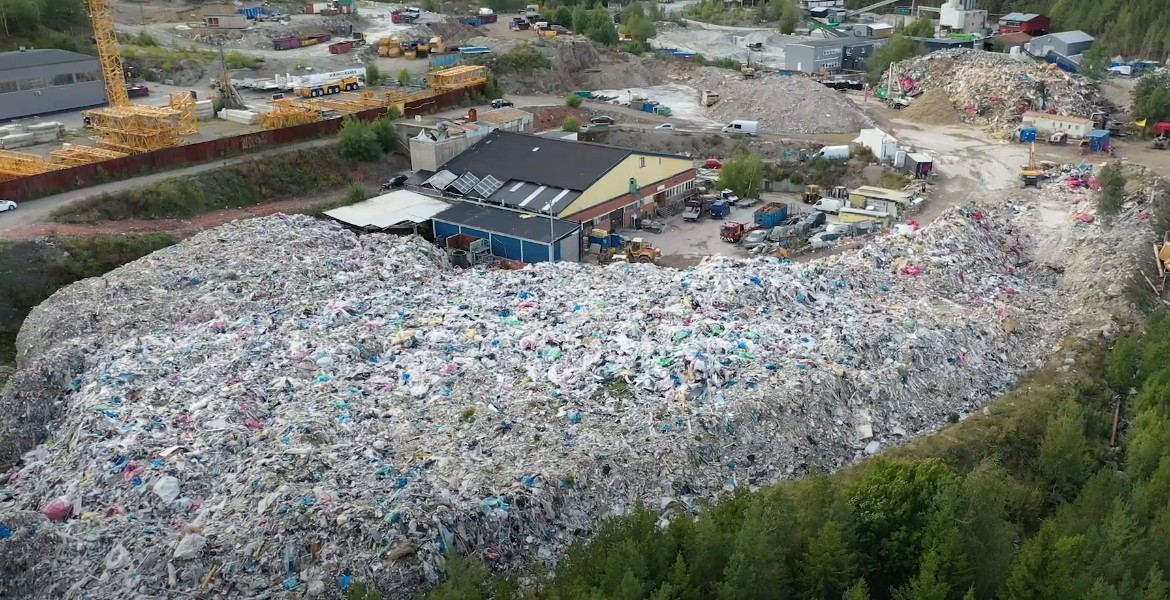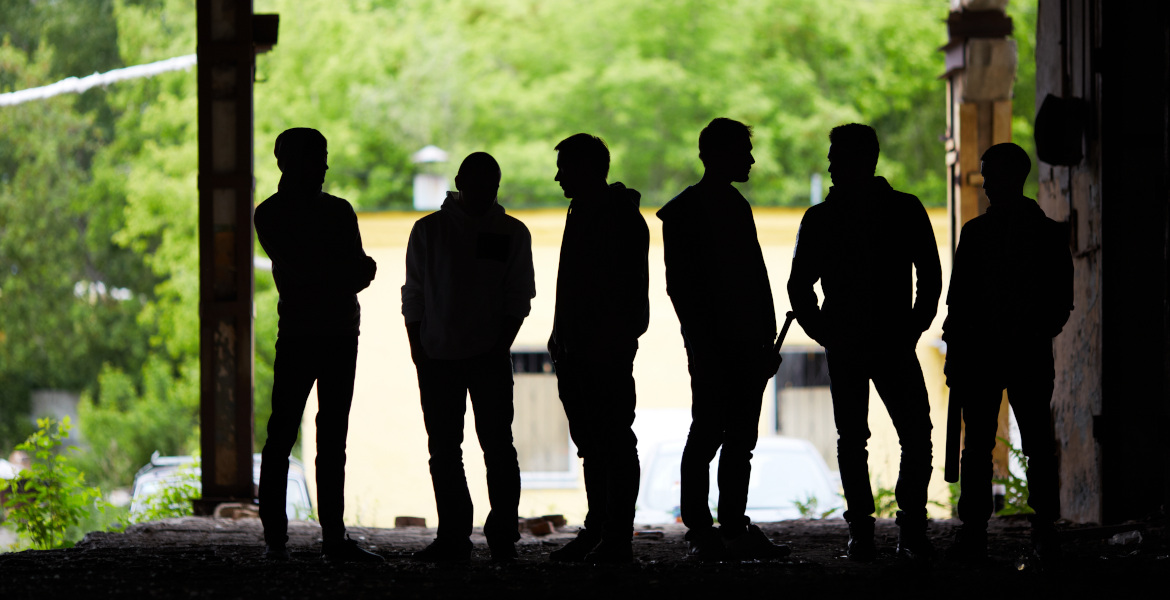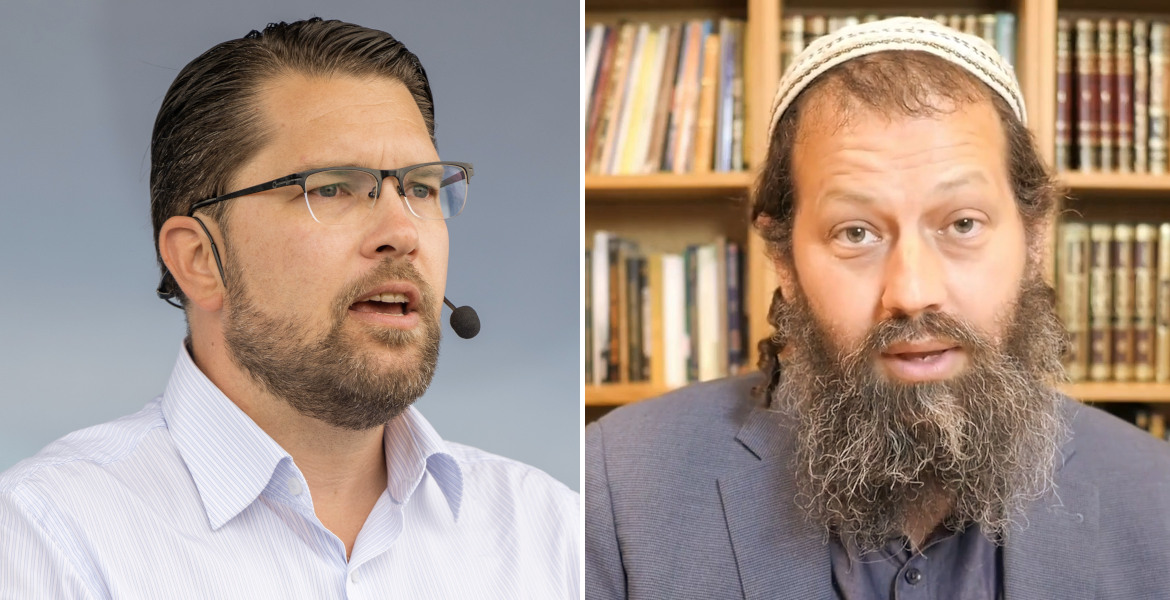Several Swedish municipalities are demanding over SEK 260 million (€23.5 million) from "the garbage queen" Fariba Vancor and scandal-ridden company Think Pink for illegal dumping of waste. The trial, which is also Sweden's largest environmental crime case, concluded last week and the verdict is expected in mid-June.
Between 2015 and 2020, Think Pink dumped approximately 200,000 tons of construction and demolition waste at 21 sites in 15 municipalities, including Botkyrka, Västerås, Norrtälje, and Eskilstuna, instead of recycling it.
The municipalities have been forced to clean up and remove the waste at great expense. The affected municipalities are now demanding millions in damages, reports Dagens Industri.
Environmental crime on a record scale
Prosecutors and environmental authorities claim that Think Pink, led by Fariba Vancor and co-founder Thomas Nilsson, systematically accepted and dumped approximately 200,000–220,000 tons of construction and demolition waste on industrial sites, gravel pits, and other locations.
Botkyrka, Västerås, Eskilstuna, Flen, Gullspång, Haninge, Huddinge, Håbo, Laxå, Norberg, Norrtälje, Skövde, Strängnäs, Uppsala, and Östhammar are among the affected municipalities.
The waste has often been dumped near water protection areas, storm drains, and residential areas, causing significant environmental and health risks.
The municipalities have been forced to clean up, transport, and treat the waste at enormous cost. Botkyrka municipality alone is now demanding up to SEK 125 million (€11.5 million) in compensation.
Västerås municipality has submitted a claim for SEK 66.6 million (€60 million), and several other municipalities – including Eskilstuna, Flen, and Norrtälje – have their own claims amounting to millions. In total, the claims for damages amount to approximately SEK 260–262 million (€23.5 million).
– We have not yet made any decision on how to deal with the remaining waste, but are awaiting the outcome of the court case, says Marianne Lidman Hägnesten, director of environmental and health protection in Västerås.
"Jag har ingen kompetens inom miljö säger Think Pink""
Då bör man inte syssla med sophantering
— NO X more (@Matsake58) September 25, 2024
Trial concluded
The trial against Fariba Vancor, Thomas Nilsson, and nine other individuals concluded on May 8 after more than 80 days of proceedings.
Prosecutors are seeking six years in prison for Vancor, Nilsson, and several other former executives, as well as financial liability for the environmental crimes. The verdict is expected to be announced on June 17, according to tax-funded SVT.
Think Pink and its parent company were declared bankrupt in 2020, and since the company has no assets, the claims for damages are now also being directed against the individuals charged, which makes the process legally complicated.
Large amounts of waste remain at several of the affected sites, posing a continuing environmental risk. Municipalities and county councils warn that chemicals and hazardous substances risk leaking into the ground and water if the clean-up is not completed.
Fariba Vancor has denied any wrongdoing in questioning and claims that she followed the law. However, the prosecution argues that the Think Pink scandal is Sweden's largest and most extensive environmental crime case ever.
Facts: The Think Pink trial
- Sweden's largest environmental crime investigation in 50 years revolves around the company Think Pink, led by Fariba Vancor (formerly Bella Nilsson). Eleven people are accused of environmental crimes, five of which are aggravated environmental crimes.
- The prosecution concerns the handling of approximately 200,000 tons of construction and demolition waste that between 2015 and 2020 was dumped in at least 21 locations in central Sweden. The waste should have been recycled, but was instead piled up or buried.
- The trial started in September 2024 and is scheduled to end on May 8. The verdict is expected in June 2025.
- In addition to the environmental crimes, several people involved are also charged with serious financial crimes, which will be tried after the environmental case.
.
Source: Public Prosecution Service





